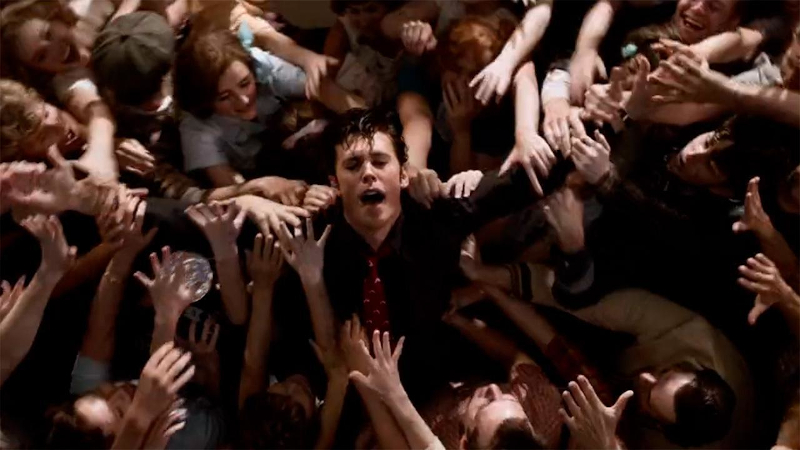Director – Baz Luhrmann – 2022 – US, Australia – Cert. 12a – 159m
***
Elvis Presley’s career from the mid-1950s through to his death in 1977, and his complex business relationship with his manager Colonel Tom Parker – out in cinemas on Friday, June 24th
Colonel Tom Parker (Tom Hanks), having a heart attack, reminisces to himself about his career. Many considered him the abuser and exploiter of the singer Elvis Presley, but that wasn’t the way it was. In the early 1950s, when Parker was managing the touring show of country singer Hank Snow (David Wenham), he heard Presley’s first recording on Sun Records though Hank’s son Jimmie Rodgers Snow (Kodi Smit-Mcphee), a singer in his own right who Parker didn’t think was anything like as good as his father.
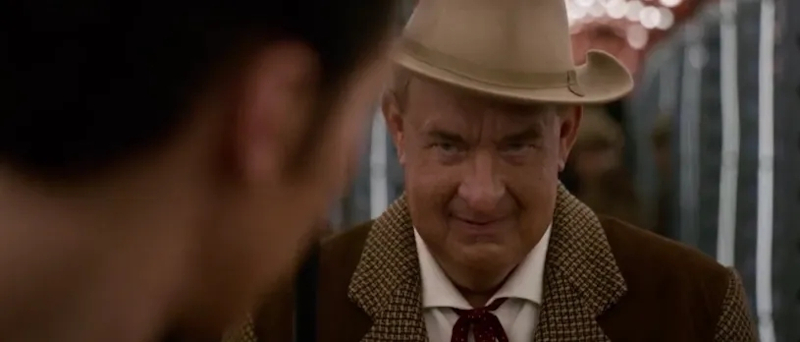
Parker, an old time carnival showman, is always on the lookout for that one act that’s a little bit different, affects audiences and might well clean up at the box office. When he first sees Elvis (Austin Butler) perform, and notices young girls and older women going wild at the singer’s dance moves, he is convinced there’s money to be made and determines to sign him before someone else does. Their business relationship will continue for twenty years.
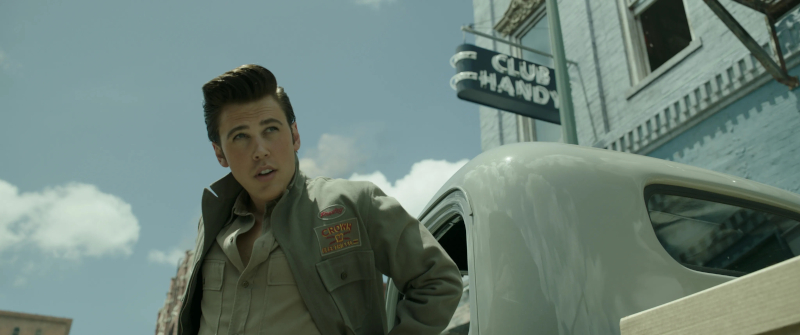
A hugely popular performer, particularly with teenage girls in the audience, Elvis soon finds himself in trouble with the white, male establishment who equate him with degenerate black rock and roll music, even though the style he plays is a fusion of country and rock and roll known as rockabilly.
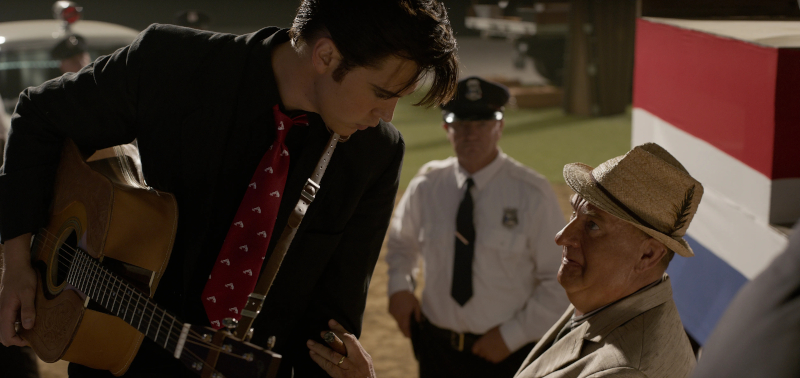
Parker can see that for Elvis to make money, he’ll have to tone back the ‘black’ feel of his music. A compromise is reached with the authorities and in 1958 the singer packed off for two years’ military service as a GI where he falls in love with officer’s daughter Priscilla (Olivia DeJonge) who he later marries. His mother dies during those two years, which has a deep effect on him.

While Elvis’ mother is still alive, Parker establishes him as a star in movies built around his singing abilities; after leaving the army in 1960, Elvis works in the movies for eight years followed by several years of residencies at the International Hotel in Las Vegas. Among other things, this allows Parker a free line of credit to support his gambling addiction.
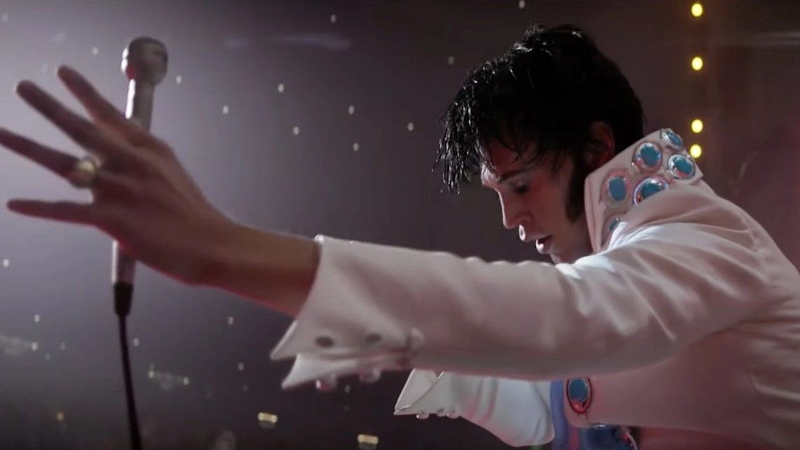
His name Tom Parker and his Colonel status both being bogus, he is unable to travel outside the US, a fact which motivates his promotion of the singer within that country only, somehow always managing to defer Elvis’ dreams of touring internationally (although he does broker for the singer the first ever global TV broadcast concert Aloha from Hawaii via Satellite in 1973). The increasingly drugs-dependent and overweight Elvis continues singing, dying in 1977. He is widely recognised as the singer who birthed popular rock and roll.

Director Luhrmann, whose earlier movies Moulin Rouge! (2001) and his debut Strictly Ballroom (1992) demonstrated a clear affinity for music, has chosen his cast well. Austin Butler is stunning as Elvis in the various different stages of his life, performing the pre-1960 songs himself and miming to the subsequent recordings. Not that you can tell – indeed, some of the early recordings blend Austin’s and Elvis’ voices and only those know the recordings intimately (and I’m not one of them) are likely to be able to tell who is singing when.

On the screen, though, Butler IS Presley and the effect is stunning. You might think these recordings provide the backbone of the film, but they don’t really: the whole thing hangs on the story of Elvis’ real life career. Luhrmann throws in the marriage to Priscilla Presley for good measure, a subplot in between – and in constant conflict with – episodes in the singer’s ongoing career. So much in conflict, in fact, that eventually the couple separate.
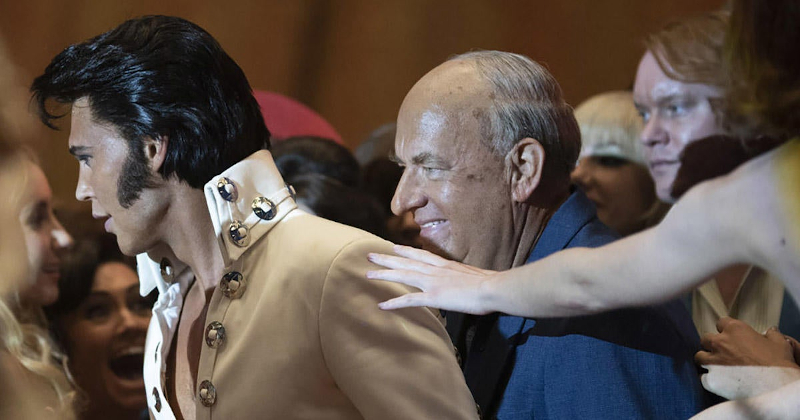
Tom Hanks is terrific as Parker, the carnival showman who knows he’s found his meal ticket and cleverly manipulates Presley to ensure the money keeps rolling in. As portrayed here, though, it’s not a straightforward story of exploitation: much of Parker’s judgement is financially astute and while he may well have taken more than his fair share, the pot from which he helped himself liberally was far bigger than it might have been in lesser hands.
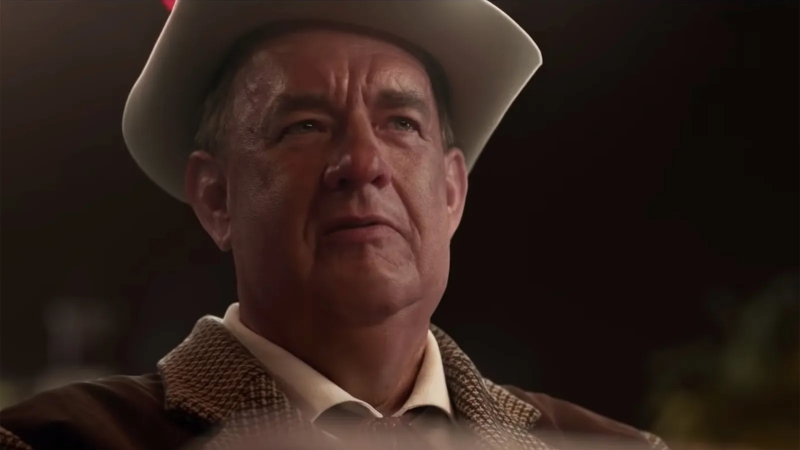
Indeed, it’s gratifying to see Hanks, whose impressive and extensive movie career has seen him play essentially good, everyman figures of one sort or another over the years, pull off a role which, if not exactly the villain of the piece, is not morally unassailable and possessed of dubious motives.
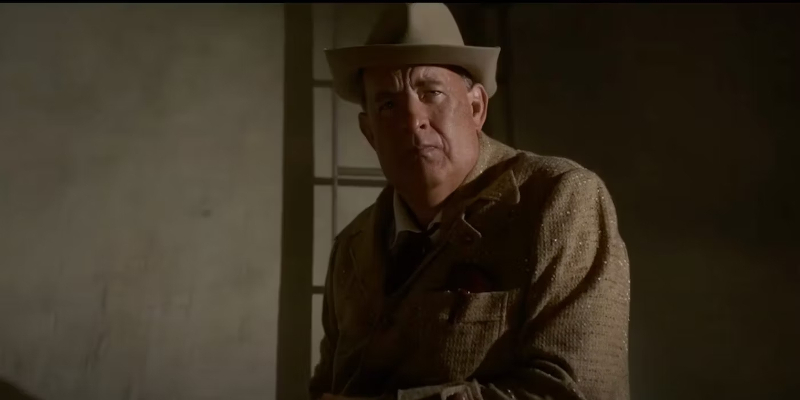
That said, Luhrmann’s focus is not always quite where it needs to be: the story is introduced from Parker’s perspective but is unable to maintain that, shifting around to a predictable if enjoyable straightforward if visually lavish biopic of the singer with Parker as a (no pun intended) sideshow to the main event Elvis’ career. Except it isn’t exactly a sideshow, more a driving force completely at odds with the singer’s musical and artistic talents, hopes and dreams, something with which the film doesn’t seem to know how to engage.
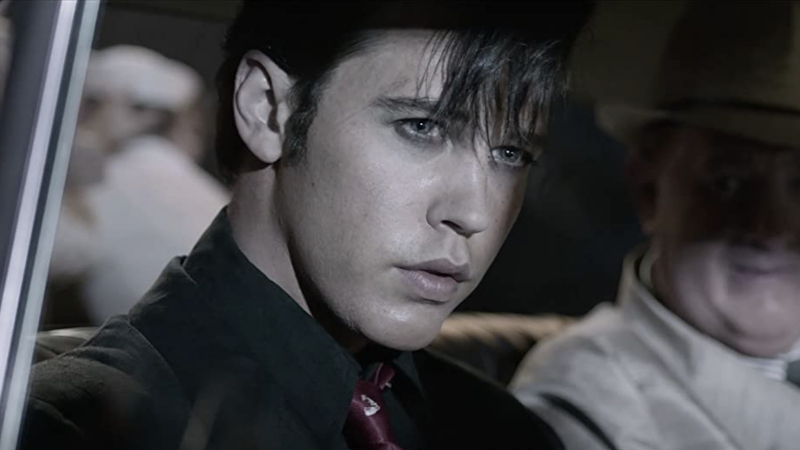
Perhaps that’s the problem of the real life Elvis: those early recordings and performances which established him as a cultural force to be reckoned with and which motivated Parker to be his manager and the person who made money off his clearly considerable talents seem at odds with the cultural icon I knew growing up in the late seventies, a bloated balladeer raking in the money for reasons I couldn’t fathom.

I remember the disbelief, after punk rock had arrived, at seeing footage of pre-GI Elvis, how shocking and vital his live performance was, as vital back then as punk was in Britain two decades later. Somewhere in the interim he had been emasculated. Luhrmann’s film manages to capture something of that emasculation, starting in its early reels to articulate the performer and his music’s relationship to the segregated American South, but it could go a lot further.
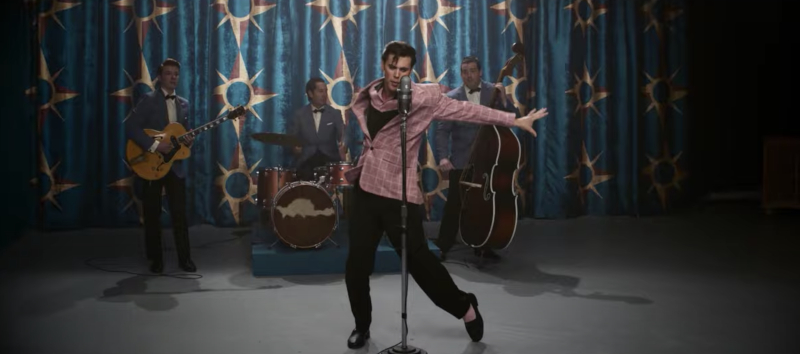
The child Elvis hung around Black revivalist gospel tents and earthy juke joints in Tupelo, Mississippi where he grew up, a white boy in a white-designated house in a largely black neighbourhood. These elements too are showcased early on here, but for Luhrmann, the Spirit-led excesses of Black Pentecostalism and the heavily sexualised secular ‘devil’s music’ are virtually the same thing, which they very clearly aren’t.
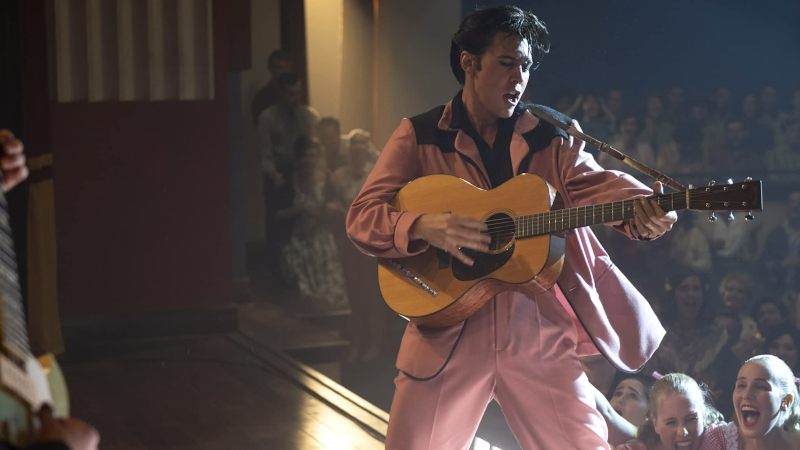
When Luhrmann gets round to the conflict between white-run US establishment and the dangerous young singer whose songs are accused of promoting lewd behaviour, the director understands Parker’s canny knack for marketing Presley’s act, but doesn’t seem to know how to explore the divided cultural roots inherent in it, sidestepping this element completely.
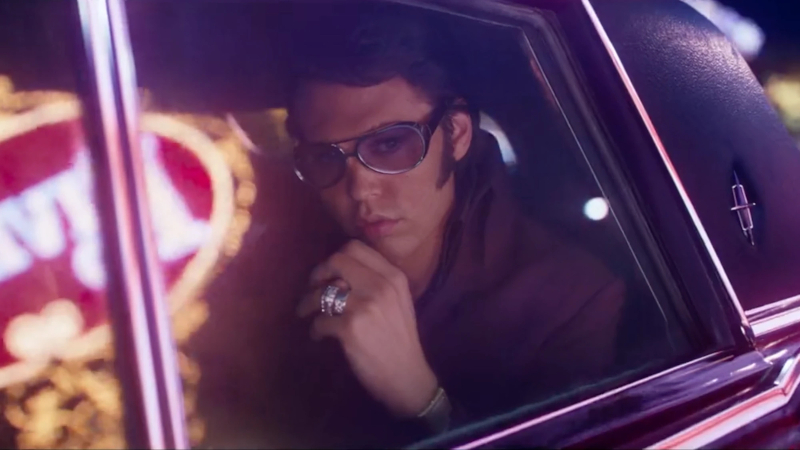
Perhaps, that’s part of the tragedy of the real life Elvis, swept up into money-spinning stardom and fame at the expense of musical and artistic integrity. And the movies, at least the ones Hollywood’s money men are keen to make, are all about big returns at the box office.

Still, the early part of the film also manages scenes at Memphis’ Beale Street where many of the great, black musicians played, some of whom Elvis hung out with and attended their gigs. We are treated to representations of such legendary characters as B.B. King (Kelvin Harrison Jr.), Little Richard (Alton Mason), Arthur Crudup (Gary Clark Jr.), Sun Records boss Sam Phillips (a blink or you’ll miss him Josh McConville) and (earlier on) Sister Rosetta Tharpe (Yola). Luhrmann skilfully intersperses the musicians’ performances with more contemporary rap-type song extracts in Beale Street street scenes, almost in Moulin Rouge! segued song fragment territory, which works again here.
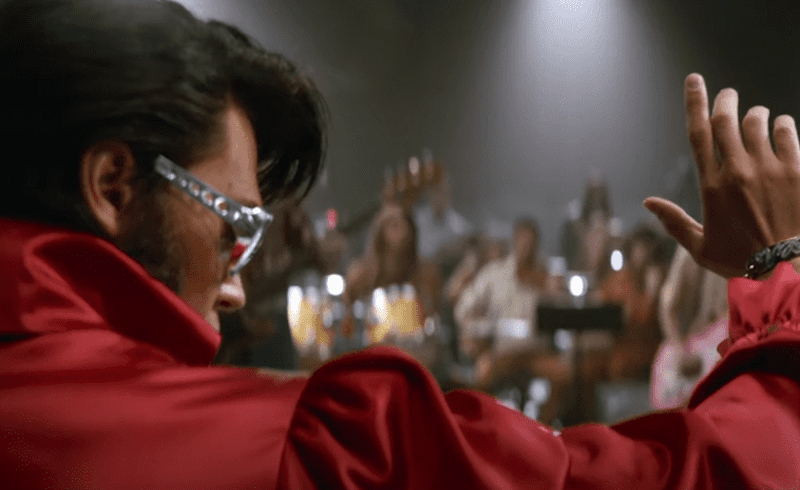
This stuff is entrancing, and you feel you want more of it; by comparison, Elvis’ later life and Vegas performing years feel like a plod (even though the numerous songs using Elvis’ actual recordings light up the screen and the drama of his marriage to Priscilla is well handled): there just seems to be too much of it and the whole thing feels overlong. Overall, it remains something of a mixed bag: essential in places, far less so in others.
Elvis is out in cinemas in the UK on Friday, June 24th .
Trailer 1:
Trailer 2:
Trailer 3:
